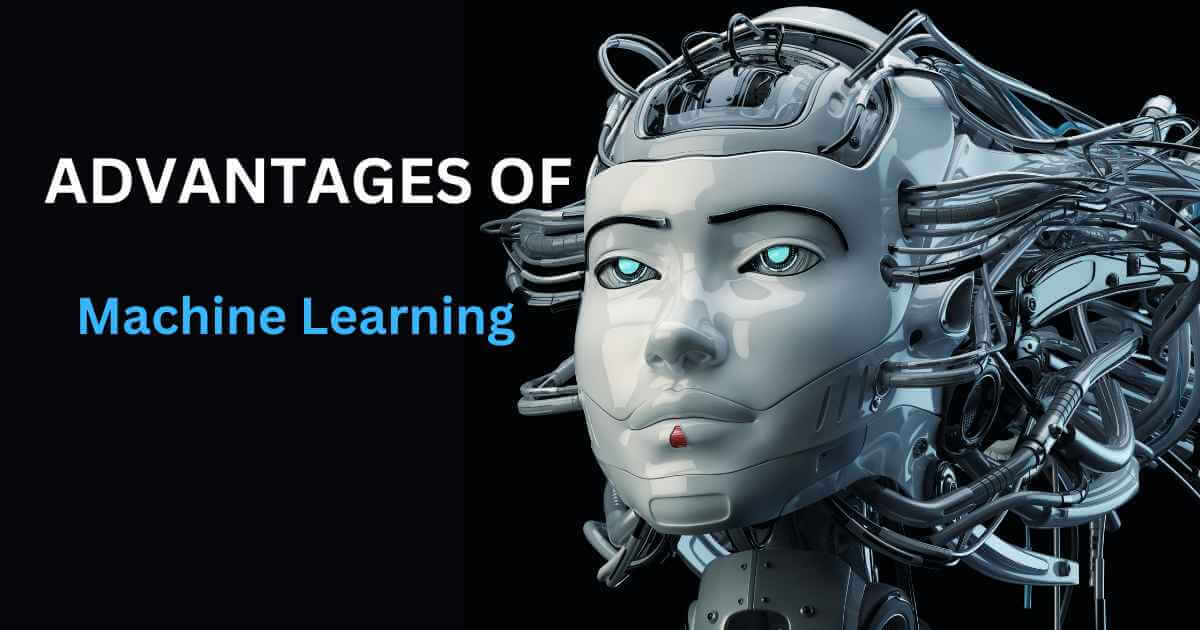In the realm of technology, few innovations have garnered as much attention and promise as machine learning. This transformative branch of artificial intelligence (AI) has revolutionized industries, research, and everyday life. From personalized recommendations on streaming platforms to cutting-edge medical diagnostics, the applications of machine learning are vast and diverse.
Advantages of Machine Learning
1. Automation and Efficiency
One of the most significant advantages of machine learning is its ability to automate processes and tasks that were once labor-intensive and time-consuming. By analyzing vast amounts of data and algorithms can identify patterns, make predictions, and even learn from experience. This automation not only increases efficiency but also frees up human resources to focus on more creative and strategic endeavors.
For example, in manufacturing, machine learning algorithms can optimize production schedules, predict equipment failures, and streamline supply chains, leading to significant cost savings and improved productivity.
2. Personalization and Recommendation Systems
Machine learning algorithms excel at understanding and predicting user preferences based on past behavior and interactions. This capability enables highly personalized experiences across various domains, including e-commerce, entertainment, and digital marketing.
Recommendation systems, powered by machine learning, analyze user data to suggest products, movies, music, or articles tailored to individual tastes and interests. For example, platforms like Netflix and Spotify use to recommend content based on viewing history, ratings, and similarities with other users. This personalized approach not only enhances user satisfaction but also drives engagement and revenue for businesses.
3. Improved Decision Making
Machine learning empowers organizations to make data-driven decisions with greater accuracy and speed. By analyzing complex datasets and identifying relevant patterns and trends. For example ChatGPT Prompt Genius offers a unique perspective, allowing users to explore diverse topics and generate creative ideas effortlessly. Its intuitive interface and adaptive responses make it a valuable tool for sparking inspiration and unlocking new possibilities.
4. Enhanced Customer Experience
In today’s digital age, delivering exceptional customer experiences is paramount for businesses to thrive. Machine learning plays a crucial role in enhancing customer experiences by enabling hyper-personalization, real-time interactions, and proactive support.
Natural language processing (NLP) algorithms, a subset of machine learning, power virtual assistants and chatbots that can engage with customers in natural language, understand their queries, and provide relevant information or assistance. These virtual assistants are available 24/7, offering instant support and improving customer satisfaction.
5. Innovation and Exploration
Machine learning fosters innovation by enabling researchers and developers to explore new frontiers and tackle complex problems that were previously intractable. From autonomous vehicles to advanced robotics, machine learning is driving breakthroughs in various fields, pushing the boundaries of what is possible.
Disadvantages of Machine Learning
1. Data Dependency:
One of the fundamental requirements for successful machine learning models is large volumes of high-quality data. ML algorithms rely heavily on data to learn patterns, make predictions, and derive insights. However, acquiring and preparing relevant datasets can be a daunting task. Challenges such as data bias, incompleteness, and inconsistency can significantly impact the performance and reliability of ML systems.
2. Overfitting and Underfitting:
Machine learning models face the risk of overfitting or underfitting, both of which can undermine their effectiveness. Overfitting occurs when a model learns to memorize the training data too well, capturing noise and irrelevant patterns that do not generalize to new data. On the other hand, underfitting arises when a model is too simplistic to capture the underlying structure of the data, leading to poor performance even on the training set.
3. Interpretability and Transparency:
The opacity of models poses significant challenges in critical domains where transparency and interpretability are paramount. Deep learning algorithms, in particular, are notorious for their “black-box” nature, making it difficult to understand how they arrive at decisions or predictions. Lack of interpretability can hinder trust and acceptance, especially in high-stakes applications such as healthcare, finance, and criminal justice. Moreover, regulatory requirements such as GDPR and CCPA mandate explanations for automated decisions, further emphasizing the need for interpretable ML models.
4. Bias and Fairness:
Machine learning algorithms are susceptible to bias, reflecting and perpetuating societal inequalities present in the training data. Biased datasets can lead to discriminatory outcomes, amplifying existing disparities related to race, gender, ethnicity, or socioeconomic status. Algorithmic bias has been observed in various contexts, including hiring processes, lending decisions, and predictive policing, raising ethical concerns and calls for algorithmic fairness.
5. Computational Complexity and Resource Intensiveness:
Many algorithms, especially deep learning models, are computationally intensive and require substantial computational resources, including high-performance GPUs or TPUs. Training complex models on large datasets can consume significant time, energy, and infrastructure, posing challenges for organizations with limited resources.
6. Privacy and Security Risks:
The proliferation of machine learning applications has raised concerns about privacy infringement and data security. ML models trained on sensitive or personal data may inadvertently disclose confidential information or compromise individuals’ privacy rights. Moreover, malicious actors can exploit vulnerabilities in ML systems to launch adversarial attacks, manipulate predictions, or extract sensitive information.
Conclusion
It is a powerful tool with far-reaching implications for society, economy, and innovation. Its ability to automate tasks, personalize experiences, improve decision-making, enhance customer experiences, and foster innovation makes it indispensable in today’s digital age. As machine learning continues to evolve and mature, its advantages will become even more pronounced, shaping the future of virtually every industry and aspect of human life.

MoneyMantra, is a passionate content creator with over 5 years of experience in writing about the intersection of technology, business, finance, education, and more. With a deep understanding of how these fields empower both individuals and businesses





